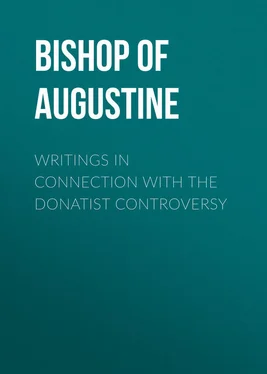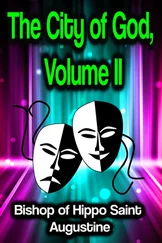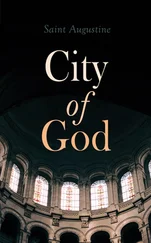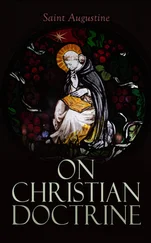Saint Augustine - Writings in Connection with the Donatist Controversy
Здесь есть возможность читать онлайн «Saint Augustine - Writings in Connection with the Donatist Controversy» — ознакомительный отрывок электронной книги совершенно бесплатно, а после прочтения отрывка купить полную версию. В некоторых случаях можно слушать аудио, скачать через торрент в формате fb2 и присутствует краткое содержание. Жанр: foreign_antique, foreign_prose, на английском языке. Описание произведения, (предисловие) а так же отзывы посетителей доступны на портале библиотеки ЛибКат.
- Название:Writings in Connection with the Donatist Controversy
- Автор:
- Жанр:
- Год:неизвестен
- ISBN:нет данных
- Рейтинг книги:3 / 5. Голосов: 1
-
Избранное:Добавить в избранное
- Отзывы:
-
Ваша оценка:
- 60
- 1
- 2
- 3
- 4
- 5
Writings in Connection with the Donatist Controversy: краткое содержание, описание и аннотация
Предлагаем к чтению аннотацию, описание, краткое содержание или предисловие (зависит от того, что написал сам автор книги «Writings in Connection with the Donatist Controversy»). Если вы не нашли необходимую информацию о книге — напишите в комментариях, мы постараемся отыскать её.
Writings in Connection with the Donatist Controversy — читать онлайн ознакомительный отрывок
Ниже представлен текст книги, разбитый по страницам. Система сохранения места последней прочитанной страницы, позволяет с удобством читать онлайн бесплатно книгу «Writings in Connection with the Donatist Controversy», без необходимости каждый раз заново искать на чём Вы остановились. Поставьте закладку, и сможете в любой момент перейти на страницу, на которой закончили чтение.
Интервал:
Закладка:
Chap. x. – 15. But what attitude do they assume, when it is shown that the holy Cyprian, though he did not himself admit as members of the Church those who had been baptized in heresy or schism, yet held communion with those who did admit them, according to his express declaration, "Judging no one, nor depriving any one of the right of communion if he differ from us?" 98 98 See above, ch. ii. 3.
If he was polluted by communion with persons of this kind, why do they follow his authority in the question of baptism? But if he was not polluted by communion with them, why do they not follow his example in maintaining unity? Have they anything to urge in their defence except the plea, "We choose to have it so?" What other answer have any sinful or wicked men to the discourse of truth or justice, – the voluptuous, for instance, the drunkards, adulterers, and those who are impure in any way, thieves, robbers, murderers, plunderers, evil-doers, idolaters, – what other answer can they make when convicted by the voice of truth, except "I choose to do it;" "It is my pleasure so?" And if they have in them a tinge of Christianity, they say further, "Who art thou that judgest another man's servant?" 99 99 Rom. xiv. 4.
Yet these have so much more remains of modesty, that when, in accordance with divine and human law, they meet with punishment for their abandoned life and deeds, they do not style themselves martyrs; while the Donatists wish at once to lead a sacrilegious life and enjoy a blameless reputation, to suffer no punishment for their wicked deeds, and to gain a martyr's glory in their just punishment. As if they were not experiencing the greater mercy and patience of God, in proportion as "executing His judgments upon them by little and little, He giveth them place of repentance," 100 100 Wisd. xii. 10.
and ceases not to redouble His scourgings in this life; that, considering what they suffer, and why they suffer it, they may in time grow wise; and that those who have received the baptism of the party of Maximianus in order to preserve the unity of Donatus, may the more readily embrace the baptism of the whole world in order to preserve the peace of Christ; that they may be restored to the root, may be reconciled to the unity of the Church, may see that they have nothing left for them to say, though something yet remains for them to do; that for their former deeds the sacrifice of loving-kindness may be offered to a long-suffering God, whose unity they have broken by their wicked sin, on whose sacraments they have inflicted such a lasting wrong. For "the Lord is merciful and gracious, slow to anger, plenteous in mercy and truth." 101 101 Ps. ciii. 8. "And truth" is not found in the A. V., nor in the Roman version of the LXX. The Alexandrian MS. adds και αληθεινος .
Let them embrace His mercy and long-suffering in this life, and fear His truth in the next. For He willeth not the death of a sinner, but rather that he should turn from his way and live; 102 102 Ezek. xxiii. 11.
because He bends His judgment against the wrongs that have been inflicted on Him. This is our exhortation.
Chap. xi. – 16. For this reason, then, we hold them to be enemies, because we speak the truth, because we are afraid to be silent, because we fear to shrink from pressing our point with all the force that lies within our power, because we obey the apostle when he says, "Preach the word; be instant in season, out of season; reprove, rebuke, exhort." 103 103 2 Tim. iv. 2.
But, as the gospel says, "They love the praise of men more than the praise of God;" 104 104 John xii. 43.
and while they fear to incur blame for a time, they do not fear to incur damnation for ever. They see, too, themselves what wrong they are doing; they see that they have no answer which they can make, but they overspread the inexperienced with mists, whilst they themselves are being swallowed up alive, – that is, are perishing knowingly and wilfully. They see that men are amazed, and look with abhorrence on the fact that they have divided themselves into many schisms, especially in Carthage, 105 105 He is alluding to that chief schism among the Donatists, which occurred when Maximianus was consecrated bishop of Carthage, in opposition to Primianus, 394 A.D.
the capital and most noted city of all Africa; they have endeavoured to patch up the disgrace of their rags. Thinking that they could annihilate the followers of Maximianus, they pressed heavily on them through the agency of Optatus the Gildonian; 106 106 Optatus, a Donatist bishop of Thaumugade in Numidia, was called Gildonianus from his adherence to Gildo, Count of Africa, and generalissimo of the province under the elder Theodosius. On his death, in 395 A.D., Gildo usurped supreme authority, and by his aid Optatus was enabled to oppress the Catholics in the province, till, in 398 A.D., Gildo was defeated by his brother Maxezel, and destroyed himself, and Optatus was put in prison, where he died soon afterwards. He is not to be confounded with Optatus, Bishop of Milevis, the strenuous opponent of the Donatists.
they inflicted on them many wrongs amid the cruellest of persecutions. Then they received back some, thinking that all could be converted under the influence of the same terror; but they were unwilling to do those whom they received the wrong of baptizing afresh those who had been baptized by them in their schism, or rather of causing them to be baptized again within their communion by the very same men by whom they had been baptized outside, and thus they at once made an exception to their own impious custom. They feel how wickedly they are acting in assailing the baptism of the whole world, when they have received the baptism of the followers of Maximianus. But they fear those whom they have themselves rebaptized, lest they should receive no mercy from them, when they have shown it to others; lest these should call them to account for their souls when they have ceased to destroy those of other men.
Chap. xii. – 17. What answer they can give about the followers of Maximianus whom they have received, they cannot divine. If they say, "Those we received were innocent," the answer is obvious, "Then you had condemned the innocent." If they say, "We did it in ignorance," then you judged rashly (just as you passed a rash judgment on the traditors ), and your declaration was false that "you must know that they were condemned by the truthful voice of a general Council." 107 107 The Council of Bagai. See above, I. v. 7.
For indeed the innocent could never be condemned by a voice of truth. If they say, "We did not condemn them," it is only necessary to cite the Council, to cite the names of bishops and states alike. If they say, "The Council itself is none of ours," then we cite the records of the proconsular province, where more than once they quoted the same Council to justify the exclusion of the followers of Maximianus from the basilicas, and to confound them by the din of the judges and the force of their allies. If they say that Felicianus of Musti, and Prætextatus of Assavæ, whom they afterwards received, were not of the party of Maximianus, then we cite the records in which they demanded, in the courts of law, that these persons should be excluded from the Council which they held against the party of Maximianus. If they say, "They were received for the sake of peace," our answer is, "Why then do ye not acknowledge the only true and full peace? Who urged you, who compelled you to receive a schismatic whom you had condemned, to preserve the peace of Donatus, and to condemn the world unheard, in violation of the peace of Christ?" Truth hems them in on every side. They see that there is no answer left for them to make, and they think that there is nothing left for them to do; they cannot find out what to say. They are not allowed to be silent. They had rather strive with perverse utterance against truth, than be restored to peace by a confession of their faults.
Интервал:
Закладка:
Похожие книги на «Writings in Connection with the Donatist Controversy»
Представляем Вашему вниманию похожие книги на «Writings in Connection with the Donatist Controversy» списком для выбора. Мы отобрали схожую по названию и смыслу литературу в надежде предоставить читателям больше вариантов отыскать новые, интересные, ещё непрочитанные произведения.
Обсуждение, отзывы о книге «Writings in Connection with the Donatist Controversy» и просто собственные мнения читателей. Оставьте ваши комментарии, напишите, что Вы думаете о произведении, его смысле или главных героях. Укажите что конкретно понравилось, а что нет, и почему Вы так считаете.












